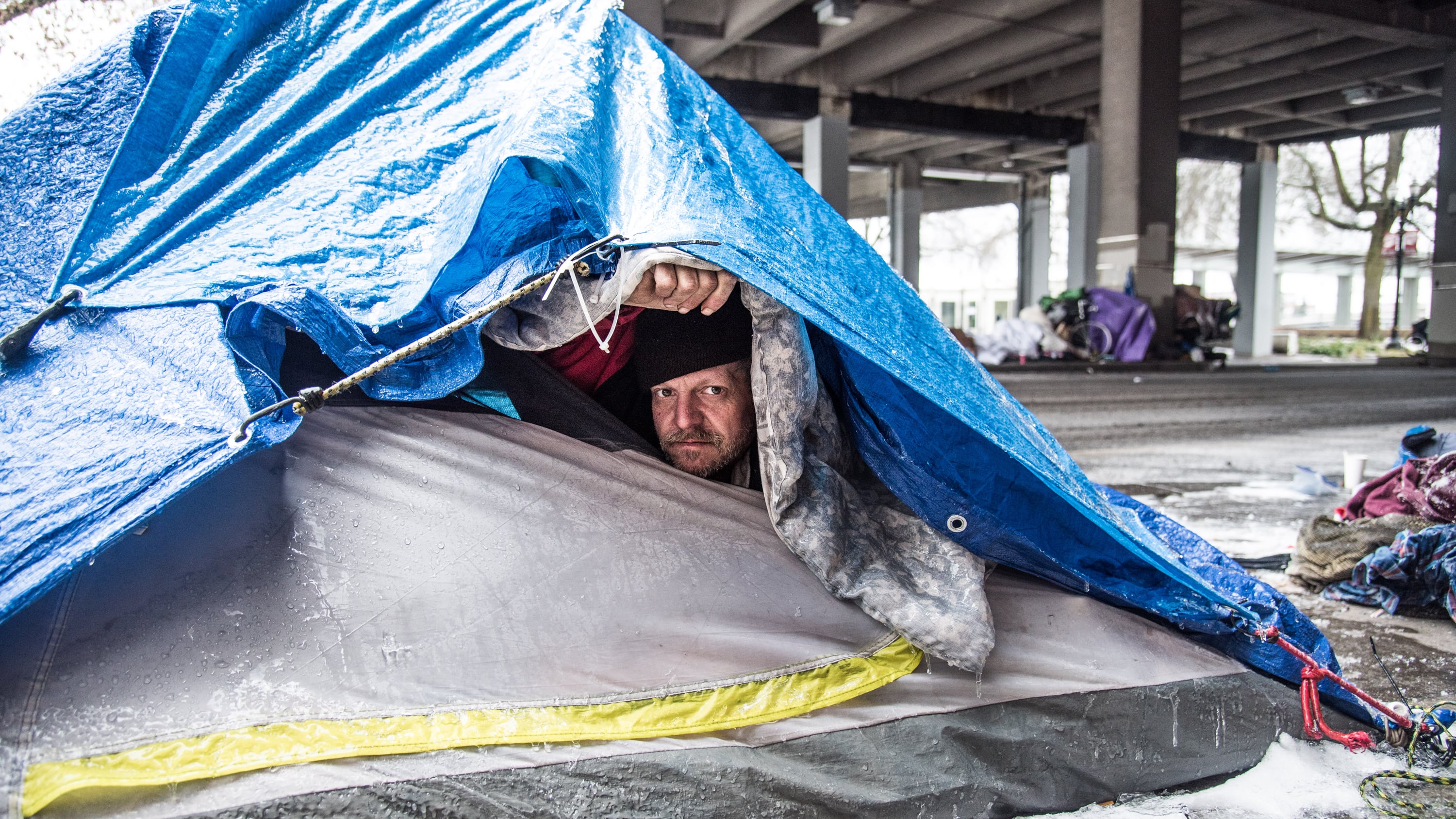Portland City Hall is about to spend $350,000 on a project to fight homelessness.
It won't house a single person or even buy a new bed.
Instead, the project was sold to City Hall as a series of meetings—up to 56 sit-downs between neighborhood associations, tenant groups and social-service nonprofits.
Its chief goal: "To engage the community…in discussions and solutions regarding efforts to reduce houselessness and the impacts of houselessness."
The project, championed by City Commissioner Amanda Fritz and approved last May, could begin awarding grants to neighborhood groups and nonprofits as soon as next month.
The city funds won't be distributed by the Housing Bureau or the joint city-county homelessness agency. It will instead be run by the Office of Neighborhood Involvement—an office the city auditor faulted two months ago for failing to keep tabs on the grants it awards.
Related: Portland woman who died of hypothermia was evicted for not paying $338 in rent.
Clearly, more needs to be done to address Portland's homelessness problem. The deaths of four people from exposure to cold weather in the past two weeks is a reminder of that need. And $350,000 is a small fraction of the $28 million the city plans to spend on homelessness this fiscal year.

But the price tag for this "community engagement" project has drawn criticism as a sizable bill for a program with few concrete goals except getting more people talking about solving the problem.
"It was an unnecessary expense," says City Commissioner Dan Saltzman, who was in charge of the Housing Bureau for the past four years and opposed the allocation. "From what I saw of the spending plan, it was taking $350,000 and just doling it out to the usual suspects."
The project was approved because Fritz fought to make sure ONI got a piece of the city's housing dollars.
Its fate now rests with new Mayor Ted Wheeler and new Commissioner Chloe Eudaly, who both campaigned on pledges to fix the city's housing crunch.
Related: Four people have died of hypothermia on Portland's streets in the new year.
Wheeler earlier this month took ONI away from Fritz and gave it to Eudaly, who now must decide whether to kill the project or keep it for herself.
The grants won't move forward without a careful review, says Eudaly spokesman David Austin, but, just a week and a half into her term as commissioner, she hasn't made a final decision. (Wheeler says it's her call.)
If Eudaly doesn't quash the project, the money—which comes from the city's general fund—is slated to begin flowing to nonprofits and neighborhood groups in March.
"We're holding off on any decisions on this until Commissioner Eudaly can get a better understanding of what the entities are supposed to do," Austin says. "She wants to make sure that the money is going to have the most impact on getting people off the streets and into housing."
Fritz defends the project she spearheaded. She says it will help everyday Portland citizens understand how they can help the homeless in their neighborhoods.
"I receive dozens of emails urging the council to 'do better' in working to stop people from having to live outside," Fritz says. "It's very clear that many Portlanders don't know what the plan is, or how they can help."
Fritz debuted the project in May. Then-Mayor Charlie Hales and Commissioner Nick Fish voted with her to approve it.
Since its initial approval, the plan evolved.
The money would be dispersed in three $80,000 chunks to nonprofits and other organizations focused on low-income tenants, homeless people, and minority, immigrant or refugee groups. Another nonprofit that ONI already works with will receive $80,000 to oversee the project. (None of the groups have been selected.)
The result? Portland residents would know more about what the city is accomplishing, and the groups that win the grants would be better prepared to lobby for means to address the homeless problem. The groups are also supposed to train new leaders.
In a break from the staid policymaking typical of City Hall, Saltzman and Fritz fought openly over the project in council chambers May 18. (Saltzman said Fritz didn't consult the Housing Bureau while cooking up the project; Fritz retorted that she had.)
The City Budget Office was, if anything, even more skeptical of the project. Its analysis in March found the expenditure duplicated efforts already underway at the Portland Housing Bureau and A Home for Everyone, the joint city-county office fighting homelessness.
"While ONI and its partners have special expertise in public involvement, there are a number of engagement and outreach efforts already funded and in place in relation to housing investments and specifically the State of Housing Emergency," the City Budget Office analysis said, recommending no money be allocated to the proposal.
The project falls to a city office already under scrutiny.
An audit in November found mismanagement and confusion at ONI. The working papers for that audit noted the bureau had acquired the nickname "Island of Misfit Toys" for its hodgepodge of responsibilities, ranging from licensing marijuana shops to fielding noise complaints.
Related: The Office of Neighborhood Involvement is overwhelmed by unrelated tasks.
A November audit found ONI doesn't hold organizations accountable for the grants it awards or require "meaningful" measurement of their work.
Some observers question whether more meetings are necessary, no matter who's running them.
"There's a lot of words and not much action," says Eric Fruits, former Laurelhurst Neighborhood Association president, saying the project reminded him of Mayor Sam Adams funding a nonprofit that then lobbied the City Council to create the Portland Arts Tax. "I always get suspicious when the ultimate goal is to lobby the commissioners."

